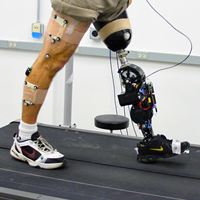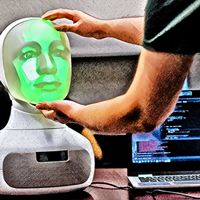Building the Wisconsin to Texas Graduate Pipeline
University of Wisconsin–Platteville Graduates Pursue PhDs in the Jonsson School
In 2015, Dr. Hynek Boril left the Center for Robust Speech Systems (CRSS) at The University of Texas at Dallas to begin a career as an assistant professor of electrical engineering at the University of Wisconsin– Platteville (UW–Platteville), where he would join his wife, Yan Shi PhD’11, a UT Dallas alumna and an associate professor of computer science. Though he joined a teaching institution, he could not give up his love of research.
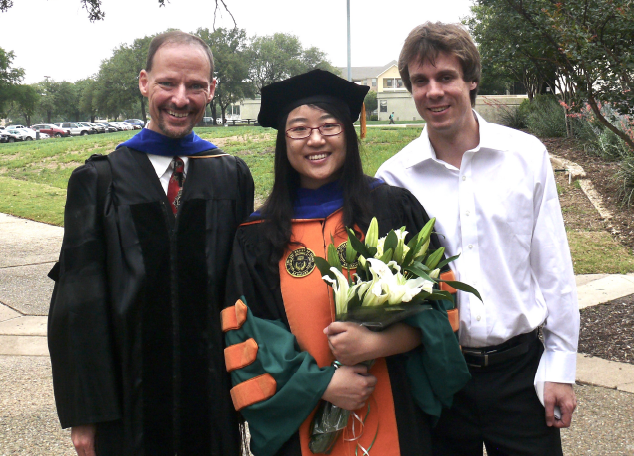
“I’ve always wanted to be a researcher,” Boril said. “The job that opened up so I could be with my wife was at a teaching university. I figured I would do research anyway, even if I had to stay quiet about it!”
By establishing research opportunities at UW–Platteville and staying connected to researchers in the Erik Jonsson School of Engineering and Computer Science, Boril has inaugurated a robust pipeline of graduate students. In the last five years, 12 students began graduate programs, and eight chose the Jonsson School.
“Earning your PhD is your passport to the world,” Boril said. “UT Dallas provided such an important foundation for me. Dr. John Hansen is still a mentor to me, and I work with him today from Wisconsin. There are many excellent institutions, but overwhelmingly, my students at UW–Platteville have chosen UT Dallas to earn their PhDs.”
Dr. John Hansen, associate dean for research in the Jonsson School, recognized Boril’s ability to connect with students.
“Inspiring students to reach their greatest potential is not an easy skill to master,” Hansen said. “Hynek routinely travels with a group of students to the Jonsson School, and the students give presentations on their work. I have to remind myself they are still undergrads! We have established summer internship experiences, then connected these bright, motivated students with our research laboratories. The credit goes to Hynek.”
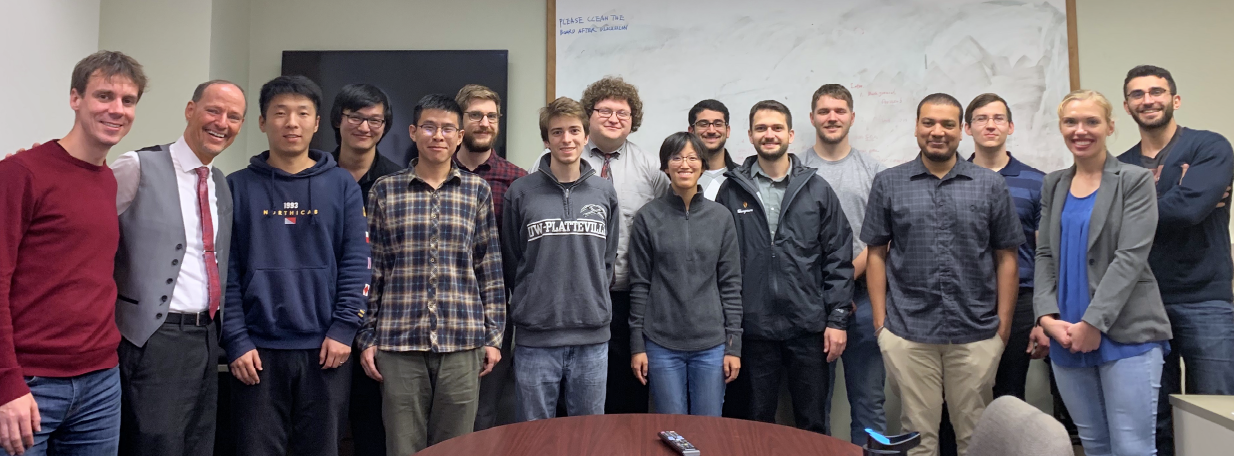
Building Personal Connections
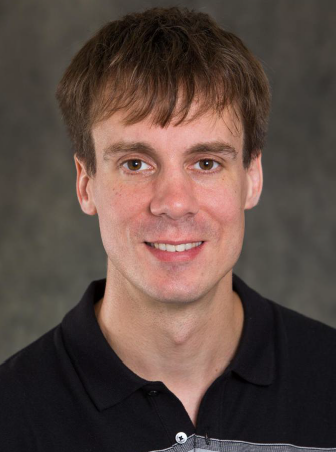
Originally from the Czech Republic, Boril began his career at UT Dallas in the fall of 2007 as a postdoctoral research associate and assistant research professor of electrical and computer engineering, working closely with Hansen, holder of the Distinguished Chair in Telecommunications Engineering and professor of electrical and computer engineering. Hansen is recognized worldwide for his contributions to speech systems research.
“I met him at my first big conference,” Boril said. “I kept hoping he would visit my poster session. Amazingly, he showed up at the end. We had lunch and talked for several hours.”
When he was close to completing his dissertation, Boril recalled, “He asked me, ‘So when do you graduate?’ That’s how I joined his lab.”
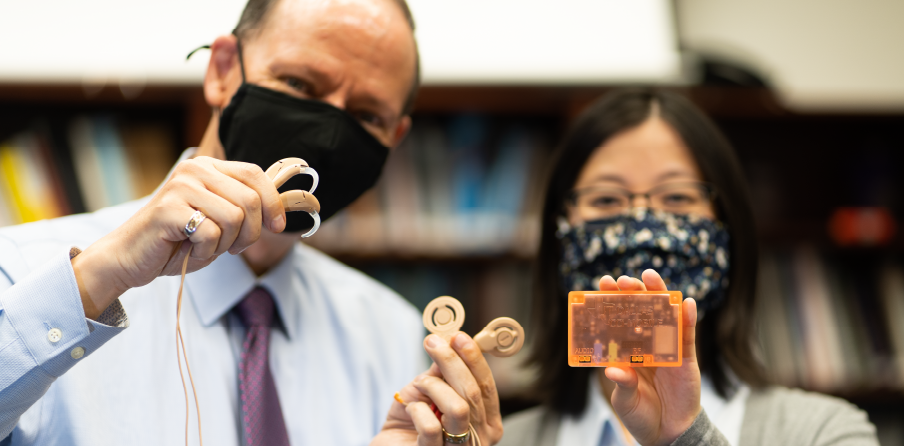
Profile
Avamarie Brueggeman
Originally from Reedsburg, Wisconsin, Avamarie Brueggeman joined Boril’s undergraduate research laboratory during her junior year. A few months later, she visited Hansen’s laboratory at UT Dallas.
She then realized she could combine her interests in music and electrical engineering: She wants to improve the quality of life for people who wear cochlear implants and other devices.
“The visit made me think, ‘This is pretty fun,’ ” Brueggeman said.
Hansen offered her a summer internship. In 2018, she joined his lab as a doctoral student. Brueggeman has been one of the top scholars in the Jonsson School, earning both a National Science Foundation Graduate Research Fellowship in 2018 and a Eugene McDermott Graduate Fellowship toward her PhD.
“It’s very important when you’re selecting a graduate school that you get along with your advisor,” she said. “I thought Dr. Hansen would be great to work with.”
Additionally, UT Dallas, now a Carnegie R1 research institution designated by its high level of research activity, provided new connections.
“The change from Wisconsin to Texas was dramatic,” Brueggeman said. “From our research to UT Dallas’ diversity, I have grown. I love Platteville, but there are so many things to do here. I love the big campus atmosphere.”
Reflecting on her choice to pursue her PhD at UT Dallas, Brueggeman said the investment has been well worth the time and effort.
“In addition to the campus diversity, I’ve visited Austria for research conferences,” she said. “Big tech companies want PhD graduates. It’s definitely a good investment.”
At UT Dallas, Boril researched digital signal processing, acoustic signal modeling and machine learning. He also co-mentored a graduate student through her PhD program.
In all, Boril enjoyed working with Hansen. Almost immediately after joining UW–Platteville, he began linking students with Hansen’s laboratory through summer internships.
“I want my students to know all their options,” Boril said. “Many didn’t think graduate school was for them until they realized the impact they could make. They learned, ‘I can help a surgeon assist in heart surgery. I can help develop hearing aids to help people across the world.’”
In addition to Hansen, the students visited other Jonsson School researchers, including Dr. Reza Moheimani, founder of the Laboratory for Dynamics and Control of Nanosystems and the Center for Atomically Precise Fabrication of Solid-State Quantum Devices; and Dr. Yiorgos Makris, founder of the Trusted and RELiable Architectures Laboratory. UW–Platteville alumni now work in the labs of six Jonsson School professors.
Establishing an Undergraduate Research Laboratory
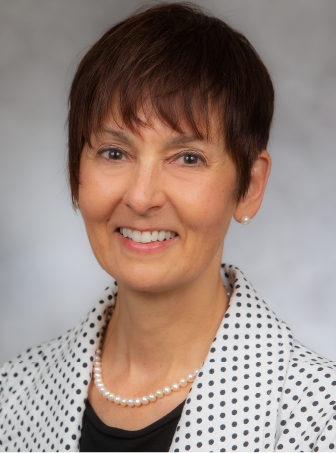
Dean Molly M. Gribb joined the College of Engineering, Mathematics and Science (EMS) at UW–Platteville around the same time as Boril. While Boril had a professional interest in continuing research, Gribb also saw an opportunity.
“With the College of EMS being primarily an undergraduate teaching institution with a strong hands-on experience and an incredible reputation with Wisconsin companies, most of our engineering students set their sights on landing industry jobs,” Gribb said. “For many, the idea of graduate studies comes hand-in-hand with piling up student debt, becoming overqualified or limiting oneself to the academic path. Nothing could be further from the truth!
“Introducing students to undergraduate research and connecting them with graduate research institutions is the best way to dispel these misconceptions and make students naturally interested in advancing their studies and broadening their career options.”
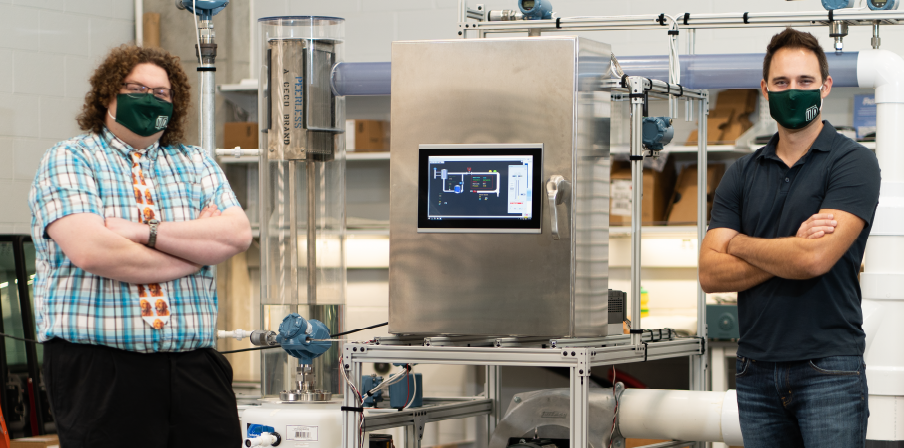
Profile
Jonas Wagner
Jonas Wagner, originally from Oshkosh, Wisconsin, joined the Jonsson School in fall 2020 to pursue his PhD in mechanical engineering following several successful experiences at UW–Platteville. He works with Dr. Justin Ruths, an assistant professor of mechanical engineering, in the Security in Control and Control of Networks Laboratory.
“I’m interested in technology,” Wagner said. “I was a lab assistant in college, and I also mentored multiple high school teams in the FIRST Robotics Competition. I’m very proud of these things.”
Like Brueggeman, he ultimately decided to move forward with his PhD after working in Boril’s lab and visiting several laboratories at UT Dallas.
“UW–Platteville is designed around industry and preparation for the workforce,” Wagner said. “However, you can’t be overqualified as an engineer. Dr. Boril was really encouraging and helped give me the confidence to take the jump.
“Also, it was nice that UT Dallas already has a community of people from home.”
Wagner arrived in Texas during the COVID-19 pandemic, which didn’t alleviate the summer temperatures.
“The difference between Platteville, Wisconsin, and Richardson, Texas, is pretty big,” Wagner said. “The A/C makes it tolerable. I do miss the cheese.
“It’s difficult to say what I will do several years from now, but I like teaching. Being a professor would be pretty great. I’m excited to be a TA this year, and I look forward to joining Dr. Ruths’ lab. I just arrived, so a lot could change, but I’m really excited to start a PhD.”
Dr. Stephanie G. Adams, dean of the Jonsson School, holder of the Lars Magnus Ericsson Chair and immediate past president of the American Society for Engineering Education, lauded Boril and Gribb’s efforts.
“Molly and Hynek are inspirations to their peers,” she said. “Good researchers create new knowledge, and good professors help students create new ideas. Hynek has done both in a primarily teaching environment.
“Molly advocates for opening new opportunities in engineering. She showed great foresight in supporting Hynek. Society as a whole needs more engineers with advanced degrees, and together we are helping fill this vital need.”
With Gribb’s support and funding provided through a new faculty program, Boril created the undergraduate Pioneer Speech Signal Processing Laboratory (PSSPL) in 2016 in direct collaboration with CRSS at UT Dallas.
“When starting PSSPL, Dr. Boril used a portion of this funding to hire the top three students in his class to encode a cluster of speech recordings,” Gribb said. “He has had eight to 12 students working and earning degree credit every semester since.”
As Boril developed his lab, he realized he was influencing his students’ future decisions.
“I realized that with undergrads, I can help change the direction of their life,” he said. “My work is really fulfilling and exciting.
“By the way, I’m still not comfortable teaching,” he joked.
UW–Platteville Alumni Currently Pursuing PhDs at UT Dallas
Chelzy Belitz — 2018
Speech and Speaker Modeling Group;
NASA Apollo project
Advisor: Dr. John Hansen
Avamarie Brueggeman — 2018
Cochlear Implant Processing Laboratory
Advisor: Dr. John Hansen
Alec “Max” Steele — 2018
Quality of Life Technology Laboratory
Advisor: Dr. Mehrdad Nourani
Hazem Younis — 2019
Cochlear Implant Processing Laboratory
Advisor: Dr. John Hansen
Aric Fowler — 2020
Trusted and RELiable Architectures Laboratory
Advisor: Dr. Yiorgos Makris
Lucas Goncalves — 2020
Multimodal Signal Processing Laboratory
Advisor: Dr. Carlos Busso
Emma Mutschelknaus — 2020
Laboratory for Dynamics and Control of Nanosystems
Advisor: Dr. Reza Moheimani
Jonas Wagner — 2020
Security in Control and Control of Networks Laboratory
Advisor: Dr. Justin Ruths


